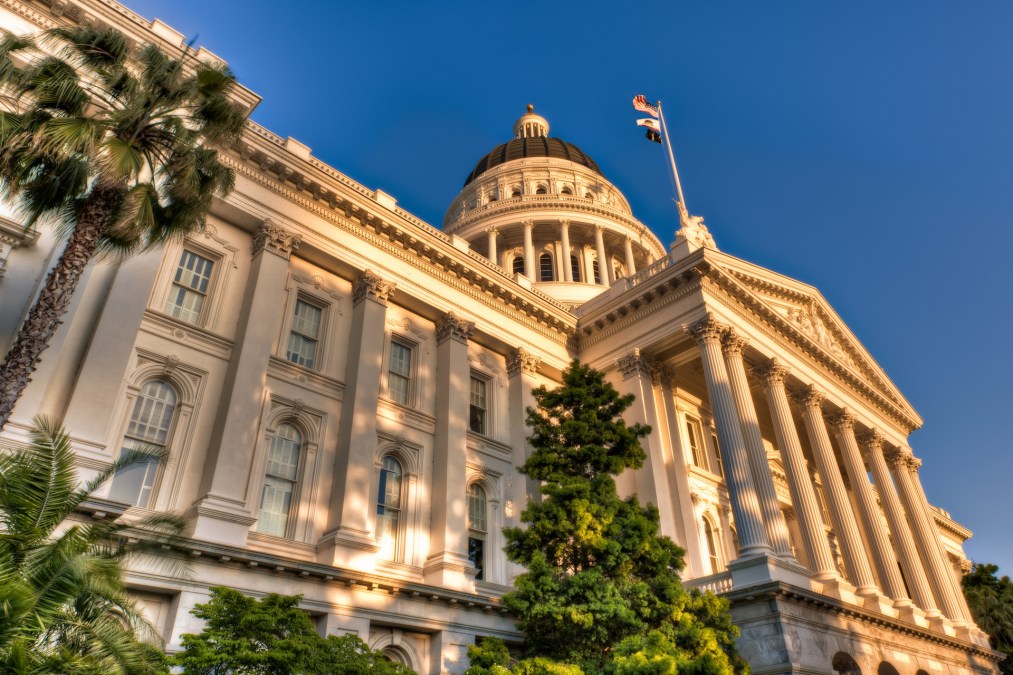California Assembly approves bill restoring net neutrality rules

The California State Assembly passed a bill Thursday designed to restore net neutrality for internet users in the state. The bill, which was approved by the State Senate in June , would prohibit California’s internet service providers from several practices, including throttling or prioritizing certain types of content.
Despite furious lobbying by the telecom industry, the majority-Democratic Assembly approved Senate Bill 822 by a 58-to-17 vote. The Senate will have to vote on it one more time to approve amendments the Assembly tacked on before it goes to Gov. Jerry Brown’s desk for a signature.
The California Legislature’s 2018 session ends Friday, and Brown’s office told StateScoop this week it does not comment on pending legislation.
But supporters of the Obama-era net neutrality rules that the Federal Communications Commission rescinded earlier this year are rejoicing in the Assembly’s passage of SB 822.
“California just took a huge step toward restoring protections that prevent companies like AT&T and Comcast from screwing us all over more than they already do,” Evan Greer, the deputy director of Fight for the Future, which supported the bill, said in a press release. “This historic Assembly vote is a testament to the power of the internet. Big ISPs spent millions on campaign contributions, lobbyists, and dark ads on social networks, but in the end it was no match for the passion and dedication of net neutrality supporters using the Internet to sound the alarm and mobilize.”
The bill’s original author, State Sen. Scott Wiener, a San Francisco Democrat, introduced it earlier this year shortly after the FCC overturned its 2015 Open Internet Order. Under that regulation, the FCC had banned ISPs from throttling the speeds at which certain types of content — such as streaming video from Netflix — and paid prioritization, in which a deep-pocked content provider pays an ISP for quicker delivery of its content.
Those rules were undone by the current FCC, led by Ajit Pai, a former Verizon lawyer whom President Donald Trump appointed to lead the commission in 2017. The acute politics of net neutrality dominated the Assembly’s final debate on SB 822.
“The Trump administration destroyed the internet as we know it,” Miguel Santiago, a Los Angeles Democrat who was the bill’s lead sponsor in the Assembly.
The bill’s opponents said SB 822 would give California a separate set of rules than the rest of the country. “Should California have its own internet, have its own rules?” asked Orange County Republican Matthew Harper. “If you’re upset by the federal government, is this simply venue shopping?”
In one bizarre exchange, another Orange County Republican, Travis Allen, suggested net neutrality rules would make it more difficult for Netflix users to stream movies because their neighbors are downloading pornography.
Wiener’s bill goes beyond the FCC’s 2015 order, adding a ban on zero-rating, a practice in which a mobile provider decides that certain content won’t count against a user’s monthly data limit — for instance, streaming video from a production studio owned by the same parent company. That addition has led supporters to call SB 822 a “gold standard” for states seeking to create their own versions of net neutrality in the wake of the FCC’s reversal. Already, governors in six states — Hawaii, New Jersey, New York, Montana, Rhode Island, and Vermont — have signed executive orders related to net neutrality, while Oregon, Vermont, and Washington have enacted legislation.
Along with the support it already had from open-internet activists and opponents of the Trump administration, SB 822 got an additional boost last week with the endorsement of the California Professional Firefighters , the 30,000-member union that represents the state’s firefighters and emergency medical technicians. The union push came after Verizon was revealed to have throttled the connections of mobile devices being used by firefighters responding to the Mendocino Complex Fire, which has burned nearly 460,000 acres to become the largest wildfire in state history.
Despite the wide margin in favor of the SB822, California faces many more hurdles in its quest to implement net neutrality. The telecommunications industry has threatened to sue the state, and the FCC’s own decision reversing the 2015 rule prohibited states from carrying out their own net neutrality regimes.
Still, the bill’s supporters are taking victory laps, including Jessica Rosenworcel, a Democratic FCC commissioner who opposed overturning the 2015 rule. “Thank you California State Assembly. Thank you for getting right what the FCC got wrong,” she wrote on Twitter following Thursday’s vote.
This story was updated on Sept. 4, 2018 to clarify legal activity surrounding net neutrality in other states.






